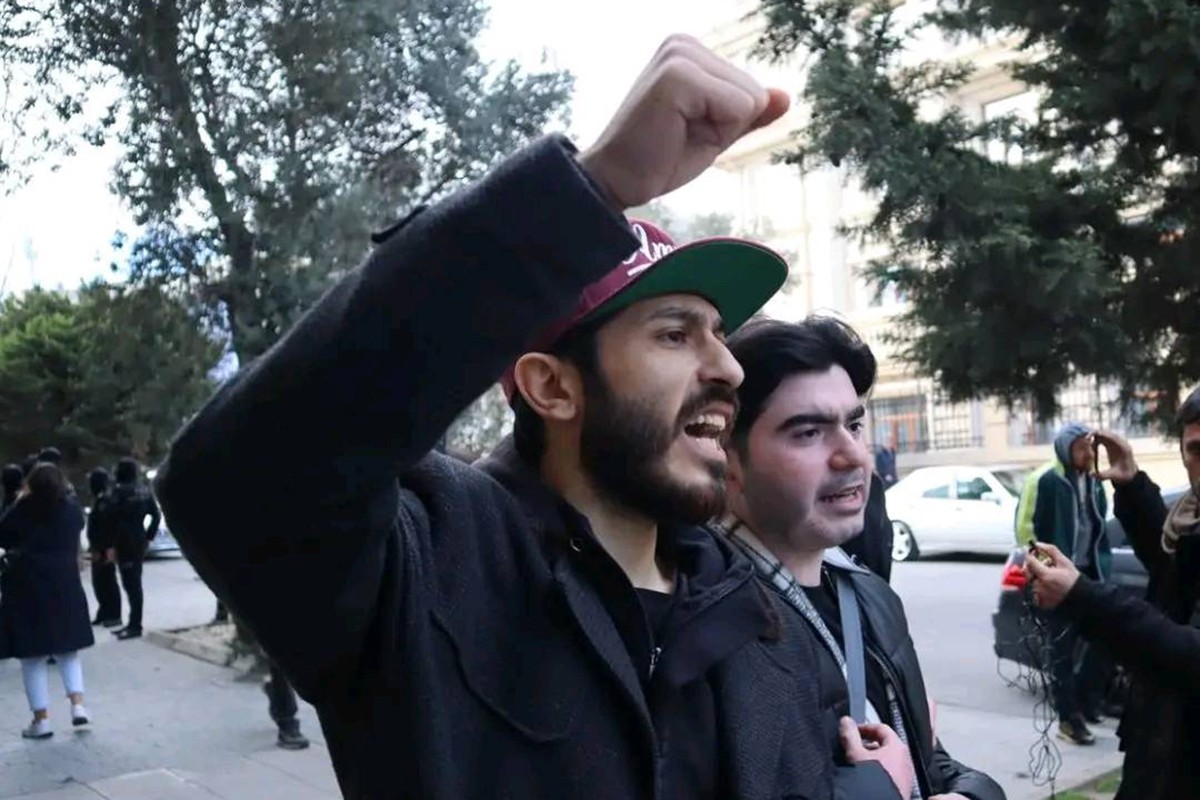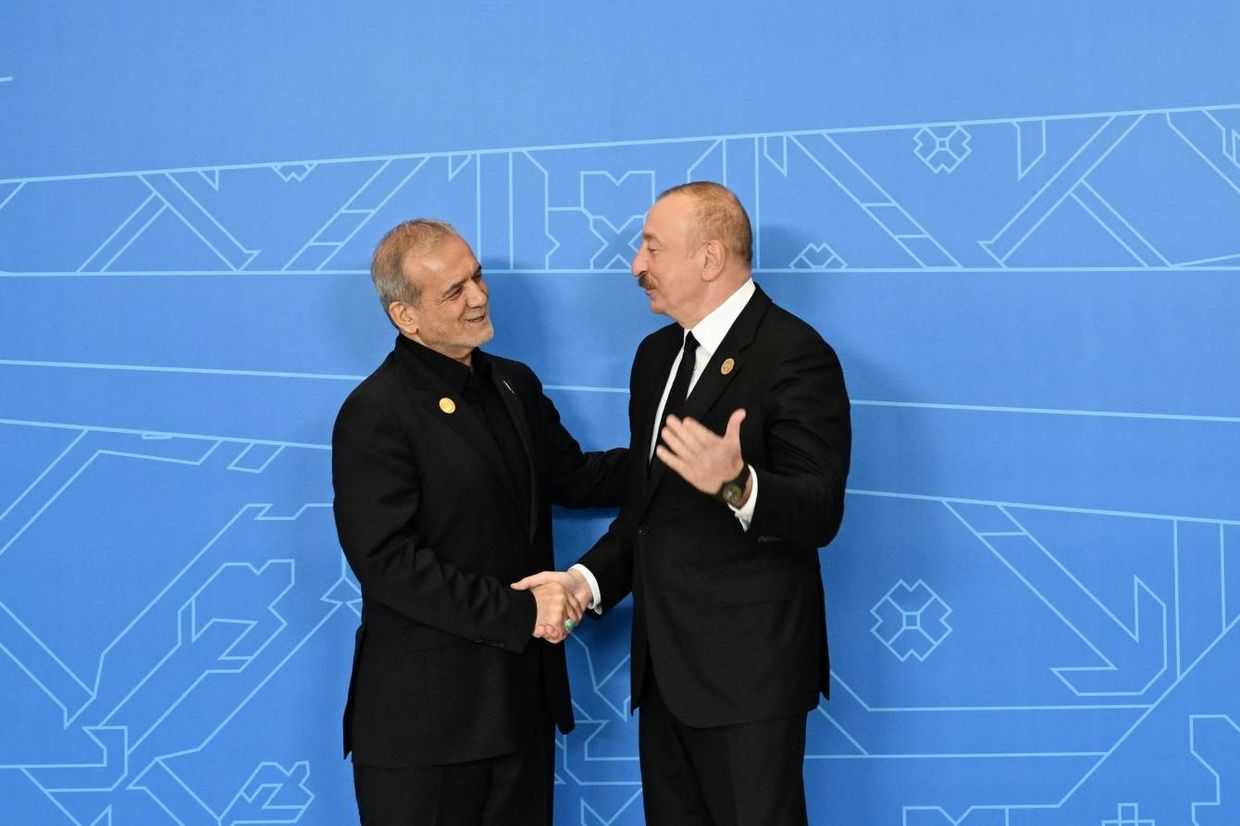
Azerbaijani police arrested two members of the Democracy 1918 movement and detained three other activists for holding a protest demanding the release of Bakhtiyar Hajiyev, an imprisoned social activist on hunger strike.
On Monday, the police dispersed a group of activists that were protesting in front of the Baku Court of Appeals against the court’s decision to uphold Bakhtiyar Hajiyev’s detention.
Hajiyev, a social activist, has been imprisoned since 9 December on charges of hooliganism, and has been on hunger strike since 9 January. The Court of Appeals denied his request to be released on bail and upheld his detention until 28 February.
[Read more: Washington calls for the release of imprisoned Azerbaijani activist Hajiyev]
During the protest, the police detained Afieddin Mammadov and Samir Sultanov of the pro-democracy Democracy 1918 movement. The two activists were later charged with petty mischief and disobeying the legal requests of the police, and were remanded to 30 days of administrative arrest.
During their court hearing on Tuesday, both Mammadov and Sultanov claimed they were denied food in detention at the police station. The activists denied their charges and said that they will appeal the court’s decision.
[Listen to Sultanov talk about the challenges faced by democratic movements in Azerbaijan on the Caucasus Digest]
Three other independent activists — Nemat Abbasov, Ali Malikov, and Narmin Shamarzadeh — were also detained at the protest but released shortly after.
Malikov, a queer rights activist, said they were verbally and sexually harassed in detention.
‘At the 27th police station, [the police officers insulted] Bakhtiyar and they mocked me […] because I had coloured hair’, wrote Malikov on Facebook. ‘One of the policemen even grabbed his own groin in front of me’.
Hajiyev’s hunger strike
On 16 February, Hajiyev escalated his hunger strike and began refusing fluids, including water. He stopped his dry hunger strike five days later, at the behest of his defence team, but continues to refuse food.
‘He has low blood pressure and low blood sugar, he has difficulty moving because of severe dizziness’, said one of his lawyers, Rovshana Rahimli.
His arrest and subsequent denial of bail has drawn the attention of various political figures and groups both within the country and internationally.
Ali Karimli, the chair of the opposition Popular Front Party, accused the Azerbaijani authorities of purposefully allowing Hajiyev to ‘[lose] his life or health in prison’.
‘The life of social activist Bakhtiyar Hajiyev, who has been on hunger strike for the 45th day in protest against his torture and arrest, is in danger’, wrote Karimli on Facebook.
On 20 February, The Helsinki Commission demanded that Baku release Hajiyev. The US commission called the activist’s detention a ‘gross injustice and sharp violation of [Azerbaijan’s] basic human rights obligations’.






